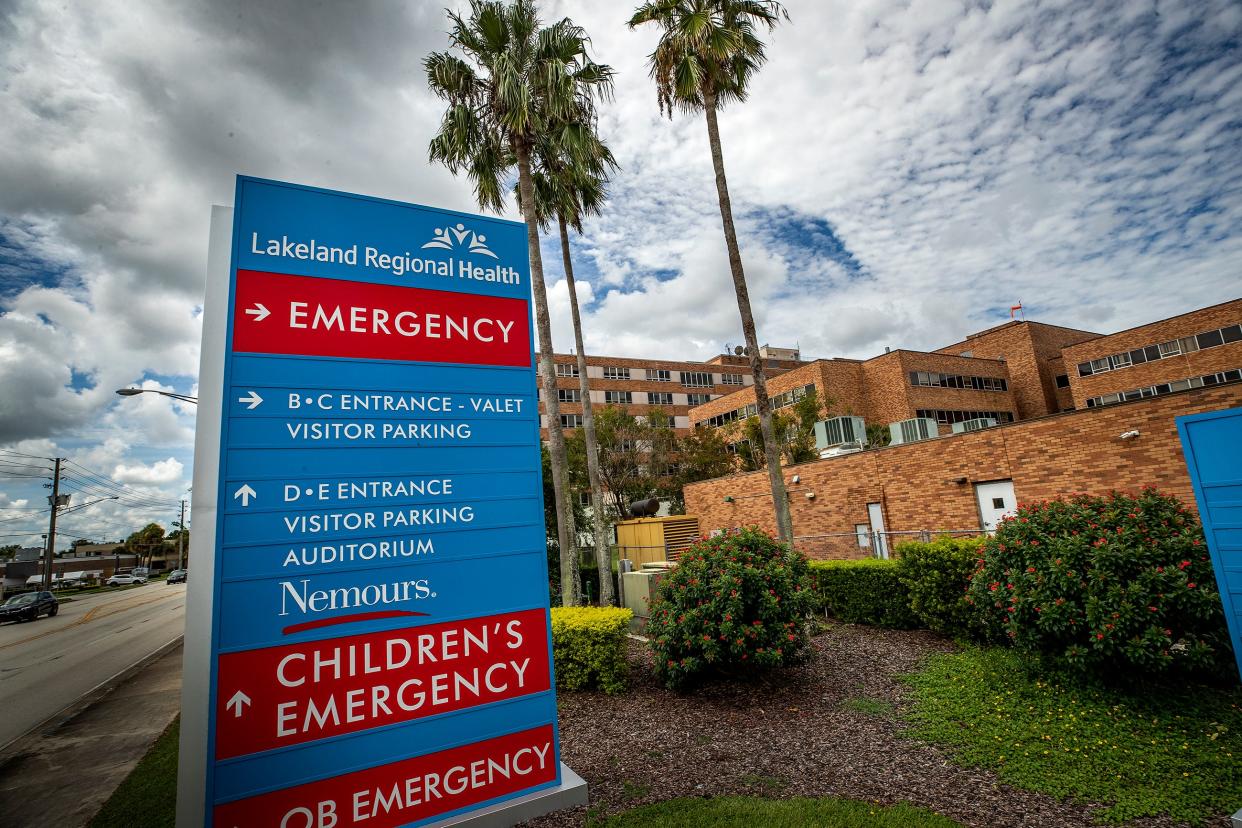Lakeland Regional has the 2nd busiest emergency department in the US

LAKELAND — Lakeland Regional Health has the second busiest emergency department in the nation, according to a new report.
Becker's Hospital Review, a medical trade industry magazine, reported there were 199,927 visits to Lakeland Regional Medical Center's emergency department in 2022. That's nearly 550 patients per day.
"Nearly 200,000 ER visits is a big number, but we do it very efficiently," said April Novotny, LRH's chief executive nurse. "It varies, but over 500 is par for the course daily."
It's second only to Parkland Health and Hospital System in Dallas. Lakeland Regional serves more patients than hospitals in major metro areas of Atlanta, Los Angeles and New York City based on the number of patients per individual hospital, not across a total health care system.
"We are the largest trauma center in the county," said Dr. Timothy Regan, president of Lakeland Regional Health Medical Center and chief medical officer of Lakeland Regional Health. "So we draw from more than the City of Lakeland."
The hospital serves as a regional Level 2 Trauma Center, Regan said, has a specialty obstetrics and pediatric emergency departments that contribute to its large influx of patients.
"Don't discount that we are a winter destination for lots of people from up North," he said. "They don't get counted in the [U.S.] census but we get a lots of snowbird visitors in the winter time who need medical care that come to us."
The arrival of the snowbirds meant the winter, from early November through March, was the busiest season for Lakeland's emergency department — coupled with the start of cold and flu season.
"It used to be," Regan said. "Now we're always busy."
Lakeland Regional Medical Center has seen a flattening out of seasonal variability post COVID, Novotny said, in exchange for a steady stream of patient seeing medical care. She believes this is due to Polk County's rapid population growth.
There are several factors driving the high number of annual visitors to Lakeland Regional Health's emergency department, commonly called ED by medical providers.
"Some of the ED volume speaks to the lack of adequate primary care options," Novotny said.
Lakeland Regional Health Medical Center is often the only point of access for people in the community who can't afford or lack access to medical care, Regan said. He said hospital's emergency room physicians are trained to take care of people with chronic illnesses who normally would otherwise been seen by a primary care doctor, or who let treatment go so long their chronic illness has developed into a need for emergency medical care.
"There are a big percentage of people who use the ED as primary care or it's an emergency because they don't have primary care," Regan said.
Lakeland Regional Health is trying to help address the geographical need for more physicians by launching its own graduate medical education program. It started this summer with an inaugural class of roughly 70 individuals, and has been accredited to train up to 187 individuals across seven medical programs.
The health care provider's hope is the residents will settle into Lakeland and surrounding communities in Polk County, some opening their own practices and improving access to medical care for the county's growing population.
Lakeland Regional Health is in the process of building its own freestanding Emergency Department and urgent care off Kathleen Road and in South Lakeland. These sites aim to help improve accessibility of care, according to Novonty, while reducing the distance and travel time for critical care.
Several other health care systems are in the process of building hospitals, freestanding emergency departments and urgent care centers across Lakeland. These sites are often utilized for emergency care to stabilize patients.
Novonty said she doesn't think these new departments will cause a drop in visits to the medical center's emergency room department. But given population growth, it will help keep the status quo.
Those patients who require more extensive cardio-respiratory support, surgical procedures, or require overnight stays or observation are regularly transferred from these types of facilities over to the hospital because of its more extensive medical services.
"If it's a true emergency where people are worried that their life is threatened and they would need to be admitted to the hospital, they should go to an ER that's attached to a hospital," Regan said.
Sara-Megan Walsh can be reached at swalsh@theledger.com or 863-802-7545. Follow on X @SaraWalshFl.
This article originally appeared on The Ledger: Lakeland Regional's emergency room is 2nd busiest in country

